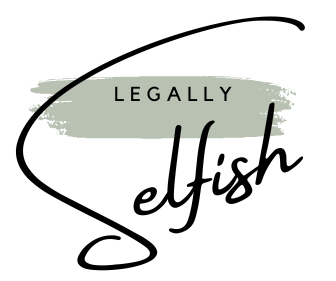A hot wave suddenly covers your entire body. Your thighs tremble. Then, you start to feel faint, woozy, lightheaded, short of breath, and as though you’re going to die. A heart attack? A coronary event? Paralysis? You fear that you might fall at any moment. On the street, at work, at home, or in the store. Then, all of a sudden, you begin to feel the cold. You simply sit there trembling from cold and fear. Familiar? Yes, it is a monstrosity known as Panic Attack. I’ve had a lot of practice with this beast. And a success story about how to defeat it.
Thereby, on my own birthday, I experienced my first panic attack. In the midst of a fantastic gathering with people I care about. I hadn’t had any drink that night, yet I grew dizzy and had an unfathomable terror. That utterly immobilized me, and I had no idea what was going on with me. In fact, at the time, I was going through a painful divorce. Despite that, I felt I was in perfect control, serene, and confident. But now as I think about it, I understand I was definitely hiding a lot of negative emotions and not dealing with them appropriately.
5 years later, the beast reappeared without warning again. During another difficult period in my life. A pounding heart woke me up in the middle of the night this time. My pulse rate had climbed to 160 beats per minute. I dashed to the cardiologist as soon as the clinic opened. The doctor examined my heart thoroughly. According to her, everything was good with me.
Damned panic attacks began to appear more frequently. So began my tour of doctors’ offices, clinics and hospitals. I’m not sure how many GPs, neurologists, and other specialists I saw, but they all came to the same conclusion: stress. One of them suggested gently that I make an appointment with a psychotherapist. Excuse me? A psychotherapist? For me?
I am a strong woman who works in a man’s world. I am good at negotiating, constantly dealing with conflict situations, always keeping a cool head, and all the time reassuring and comforting others. And now I need to see a psychotherapist? You are joking, right?
A recurrence of a panic attack drove me back to that psychotherapist like a hurricane.
Therapy for 6 years. Hard, consistent, long, and straightforward. And the end result has been a new me. To be more specific, I’ve gotten to know myself again. The genuine me.
Panic attacks, according to my therapist, arise when we suppress our feelings. Emotions that are negative. We forbid ourselves from feeling certain emotions. We suppress certain emotions because they are impolite, immoral, or unpleasant. Emotions that make us appear vulnerable, furious, or untrustworthy. And the majority of the time, we have unfavorable feelings about those who are close to us. Yet we don’t allow ourselves to feel them because they make us feel horrible about ourselves. Yet we aren’t bad people, and we can’t have negative feelings towards our loved ones, can we? Only terrible individuals have bad feelings, we think.. Ha! Such nonsense!
So, how did I manage to stop having those dreadful panic attacks?
- Mental health counseling.
- Prescription medication.
- Constantly keeping an eye on my thoughts.
- Physical and mental exercises.
I distinctly recall thinking at the time that advices like these were just useless fiction when I first read it. Some theory created by individuals who have never had a panic attack. I was wrong. It turned out that everything requires persistence and time.
What you need to know is the following:
- Look for a reputable, licensed therapist with experience treating anxiety and panic attacks.
- Don’t hope for a quick fix. It won’t occur. Not after one session or five. The outcome will be apparent in six months, a year, or more.
- For a while, your doctor might recommend medication. Antidepressants, probably. He or she will pick the best options for your circumstance. Count on the doctor; he or she is an expert.
- Do not stop going to therapy. Continue going consistently, even if you feel better for a while or if you believe the therapy isn’t working. In any case, don’t give up. Sometimes, panic attacks keep returning for a while to see how you’re doing without them.
- With the help of therapy, you will discover exactly what situations cause panic attacks in you. And why you react the way you do. And once you figure that out, those situations will no longer be triggers. Simply put, it is a flashback to the past.
- This will assist you in getting over your fear of new attacks. And when you are no longer afraid of something, those abominations flee from you.
Here are a few more pointers:
- Keep a journal and write down how you felt during each attack. When you’ve calmed down, try writing down what’s happened in your life in the last few days. And how you felt in each circumstance. What emotions were you feeling at that time? Does this remind you of a similar situation that happened before?
- Writing helps to relax your mind. Writing will also allow you to express your emotions, particularly negative ones. Also, make a note of anything that helped you stop the attack sooner (e.g. what music, what TV show or exercise).
- Do not discard or delete your journal. After a while, you’ll notice that certain events that you keep in your diary keep triggering panic attacks.
- There are numerous apps that can help you relax during an attack. Download them to your phone. When an attack occurs, it is often difficult to concentrate, remember and perform exercises. Apps will assist you in returning from the attack world to reality as quickly as possible.
- People are often embarrassed to discuss anxiety or panic attacks, even though there is nothing shameful about it. Surprisingly, when you discuss panic attacks with your friends, it turns out that many of them are also silently suffering with this disorder. And when you do, you not only feel a weight lifted off your shoulders, but you also gain the support of a team.
- Don’t be concerned if the attacks resume after a while. This is typical. But keep in mind that as time passes, you will become stronger, and the attacks will become weaker and less frequent. Eventually, they will completely disappear from your life.
Why do I keep telling you not to give up, not to give in? Because once you begin coping with panic attacks, several aspects of your life may change. All for the best! Such as:
- You will no longer be worried.
- You will no longer be terrified of imagined horrific tragedies, disasters, and catastrophes.
- You will no longer be frightened to do things that used to terrify you.
- You will no longer feel guilty all of the time.
- You will develop the ability to say NO. And you won’t feel bad about saying NO.
- You will learn to accept your anger, frustrations, disappointment. Even towards those closest to you. Because rage is merely an emotion. Frustration is merely an emotion. Disappointment is merely an emotion.
- Your social circle may shift. You may realize that you no longer have common interests with a few pals, or that you remain with them not because they are nice for you, but for duty, pity, or other reasons. And you may notice that new, fascinating, and fun people are approaching you more frequently. Life brings you into contact with people who share your interests, seemingly by chance and seemingly out of nowhere.
- New interests or hobbies may emerge. You might be shocked that you didn’t think you’d appreciate this before. Furthermore, any physical activity helps to clear your mind of unwanted thoughts.
- You might feel braver and more confident. And I’m talking about your inner strength and confidence. Not a show, not a sham, but the actual thing.
- You might begin to see things more clearly. You might just locate and press the “so what?” button in your head. It might not be to someone’s comfort, but it will undoubtedly improve your mental health and quality of life.
- Eventually, you’ll realize there are no situations or difficulties you can’t solve. Simply put, THERE ARE NONE!
Therefore, do not give up. Do not stop. You want to live your best life after all. And you will live it!
Hugs,
L.
P.S. This article is about techniques that have helped me. This is my personal experience. I am not a medical doctor, so if you are worried about your condition, please consult a medical professional.

